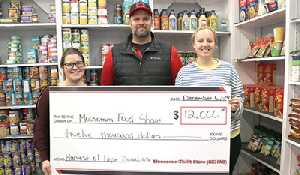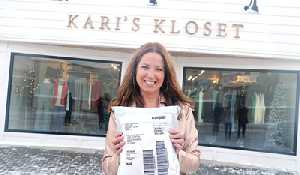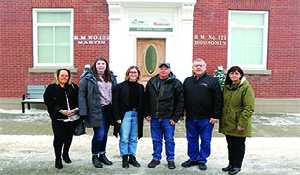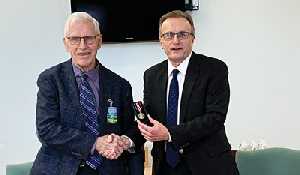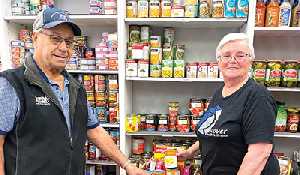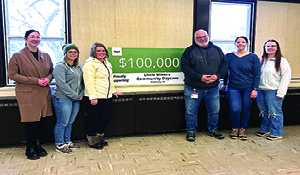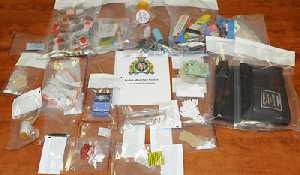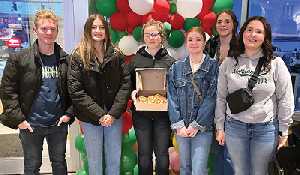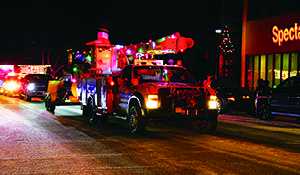Living with Crohn’s and Colitis a constant challenge
Charlie Leslie, Nancy Apshkrum want to spread awareness of disease
May 2, 2024, 4:30 pm
Ashley Bochek
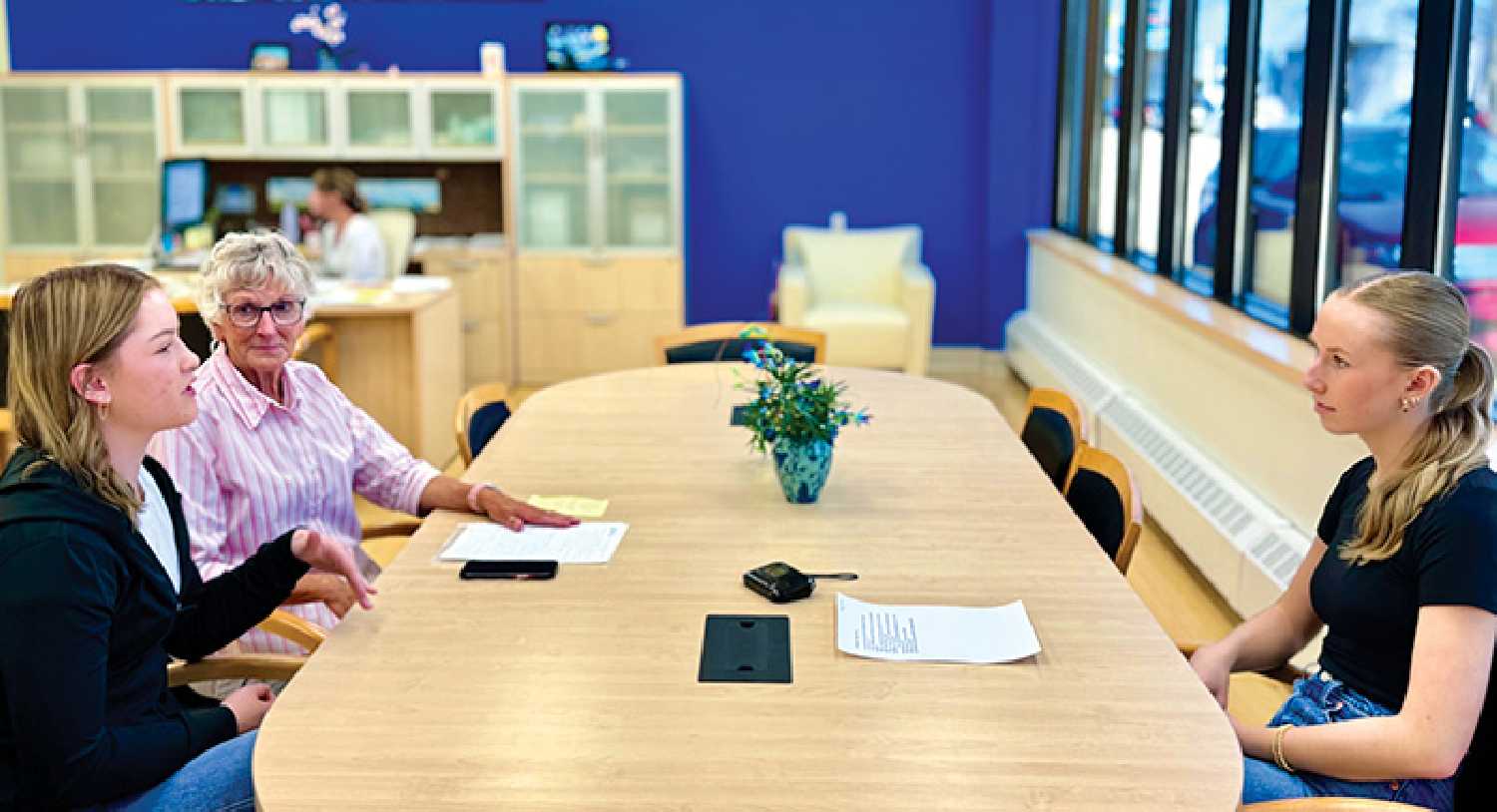

Charlie Leslie is only 16 and says it is a constant challenge living with a chronic disease, Ulcerative Colitis. She just wants people to understand the challenges she faces.
Nancy Apshkrum has seen Crohn’s and Colitis from a different perspective, as a mother and a Registered Nurse.
Both women will participate in the Gutsy Walk to raise awareness of Crohn’s and Colitis in Regina June 2.
“For me, the Gutsy Walk is letting other people know what the disease is about, and trying to spread awareness as much as we can,” says Charlie. “It is definitely not about the money for me. I want people to understand it is an everyday occurrence in lots of people’s lives and it is hard to live with. Lots of people don’t see that because it is a disease on the inside and not the outside.”
Nancy says it’s hard for people to understand just how much of an impact the diseases can have on people. “Crohn’s and Colitis Canada deals with the two big ones. Crohn’s and Ulcerative Colitis, but I find in the work that I’ve been doing the various types of irritable bowel disease all have a big impact. I’ve seen it as a mother and as a nurse, but I have never lived with it. I think until you do, you really won’t understand.”
“I call it spoons. You can only have so many spoons throughout the day for like certain tasks you have to have so many spoons for everything,” says Charlie. “So, going to school is like six spoons and you have 12. Then, going to work is three spoons and then how many spoons do you have left to do what you want, because then by the time you are done work you feel sick. You wake up in the morning and have zero spoons and then by the time you get out of bed and get ready for school you have two or three spoons. You keep getting them until lunch I feel and then by that time you are losing spoons again because you are just tired of the sitting there all day and communicating with everyone. It drains you, especially when having to leave classes because you don’t feel good and then work. A lady at the last Gutsy Walk shared the spoons idea with me.” Charlie says.
Nancy adds, “It hits your immune system. If it takes a big hit you don’t have a lot of an immune system left to deal with normal activities of daily living that the rest of us don’t even understand.
“When we do the Gutsy Walk you walk with others that have active disease and for me that is like winning the lottery to walk with others and hear their stories.”
Charlie said, “I love getting to hear the stories at Gutsy Walks. When I was the Honorary Chair I was 14, but I didn’t really understand what it was about. I had to write how it impacted my life and mine was a very short story, but last year there was a lady and I thought her story was very close to me because she danced and talked about sports that I played and she talked about how hard it was having the disease and having to quit dance because of it and I just felt like I was in the same shoes as her. It’s so hard to find someone your age that has the disease and understands.”
Progress is being made
Nancy says there has been improvement in treatment for Crohn’s and Colitis thanks to fundraising and research efforts.
“When my son, was diagnosed at age 12 there was very little treatment for him so really that is why I got started because I live in Moosomin and I had to see what I could do from here. The only way to get a better quality of life for people with active disease was to raise money to fund research, so now what is available for Charlie and the treatment regimen that she has, compared to what was available for my son when he was diagnosed. It is like another world. That is why I can’t quit and give up—because Charlie and my son are walking examples of living with this disease. There is no cause, no cure, and no one treatment that works for everybody.”
Charlie adds, “They try the one treatment that they think will work for everyone. It works for 98 percent of the people which is called Remicade which is what most people are on, but for that two percent of people it doesn’t work, and I am one of those two percent.
“You have to find different alternatives and they mix certain types of drugs so it works for you better,” Charlie said.
Nancy explains, “Those are superdrugs they start at the bottom of the line and you work through all the bumps until you qualify for a superdrug.”
Road to a diagnosis
Charlie says, “When it first started we went to Regina first and they diagnosed me there and gave me pills first to see if it was Irritable Bowel Syndrome (IBS) type thing. Then, they found out later it was Ulcerative Colitis then I was switched to the hospital in Saskatoon for infusions every two weeks. Remicade usually lasted about six hours in the hospital and then you have to spend two hours for observation afterwards. Here, they referred me to somebody in Regina, then they referred me to someone in Saskatoon. I think for about a year of going back and forth to Saskatoon we found a drug that was working then it stopped working. So, then we went back again for another scope. They found another drug called Entyvio which I am on right now. That infusion was every four weeks and then they actually developed the auto-inject a few months later. It’s like an epipen which I was really excited for because then I could start doing it at home instead of driving there all the time which is really nice and I am still on it.
Symptoms started at age 11
“It was really bad in the beginning and it continued to keep getting worse. It started when I was 11 years old, but I wasn’t diagnosed until I was 12. It was the beginning of the summer and I went to a dance camp and I lost about 20 pounds when I was there in a span of a week. I was calling my mom every night crying because I was so sick.
“When she came to pick me up she saw I was very pale and had lost a lot of weight so we went to the doctor and then they diagnosed me when I was 12. I am definitely a lot better than I was, but I am still not great and they’re still trying to figure out what else to add to the drug to get it better. I am busy all week because I have to go to Regina to get a tube shoved down my throat for them to look and see what else is wrong. It is frustrating.”
The number of Crohn’s and Colitis cases is increasing.
“The numbers are still increasing, Saskatchewan has 10,600 diagnosed cases of Crohn’s and Ulcerative Colitis. The increase in numbers is being driven by diagnoses in children. Particularly those under the age of six. Canada has one of the highest rates of pediatric Crohn’s and Colitis in the world. Traditionally Crohn’s and Colitis is diagnosed in adolescence or early childhood, because now they have better methods of diagnosing it. So therefore, you don’t go through 10 years of fighting it before you have a diagnosis. They’re finding it sooner. That is why I am caring on because I think there has been lots of suffering in the younger age group before it was diagnosed. I thought that was real interesting.
‘No one else can understand unless they have the disease’
“I always compare to other people because I think I could have it so much worse, but then when you look at yourself you just need to stop doing that because no one else can understand unless they have the disease. You can try and I like that my friends do try to understand. It’s hard when you have no one to talk to your age that goes through what you go through. I find that it is harder for a teenage girl than it is a teenage boys because boys are allowed to be gross and go to the washroom and no one thinks anything of it, but girls can’t. Women can’t, it’s not ladylike.”
Nancy says it’s encouraging that researchers are still looking for a cure.
“It kills me because there are so many brilliant people out there how they can’t figure it out.”
Charlie says she is very limited in what she can eat. “Lettuce, carrots, anything with seeds, milk, alcohol, and spices. Lots of meat like steak I love it I just can’t eat it. They just don’t digest. Lots of times when I go places people will ask me ‘Oh, can you eat that?’ and I just say it is fine. I should be a little better with it and I was at one point, but now I either eat it or I starve. There is not really anything else there for me. I can’t eat a salad or meat. I can eat chicken and rice—those are good.”
Charlie says the disease impacts her life in other ways, too. “It just makes everything so much worse. Like my acne is from my medication and I can’t get rid of it because I can’t get rid of my medication. It sucks.
“When I was in Grade 7, I missed a full two months of school. I was really, really sick. I was in the hospital in Saskatoon for two weeks and then they sent me home because there really was nothing else they could do, but the pain from the disease back then when I didn’t have the meds that I do now for the pain was really bad. I would cry on the floor cradled in a ball. That is why I wouldn’t go to school.” Charlie said.
“Your immune system is affected and the drugs affect it. So these kids have to stay well,” Nancy adds.
Charlie contracted COVID, which was dangerous because of her compromised immunity. “I wasn’t allowed friends over later during COVID and then I got it anyway. I was in the hospital for that for about a week because you have no immune system you can’t fight it.
“It’s like your body doesn’t understand that that part of your stomach isn’t healthy. It’s like it is attacking itself. That is why there is no cure because it doesn’t recognize that is your body.”
Gutsy Walk important to spread awareness
Charlie says the Gutsy Walk is an important way to spread awareness of the disease. “I think it is important because no one here in my town that I know of has what I have. Some people may have IBS or Crohn’s disease, but not like me that I know of. I like getting to go to the walk and talk to people about their experience with it and hearing what tips and tricks they have about how to get through the day better, living with this disease. It is really nice going and being with people who really understand you and understand what you are going through. I would love to find someone my age who is a girl I could talk to,” Charlie explains.
Nancy has raised more than $200,000 in the walk over the years and hopes to add $10,000 to that this year.
“My goal for this year and has been for the last several is $10,000. I started in 1999. My first donation was $411 and last year I think I had $15,000. In total, I have raised $205,153. When I saw that total, I actually had to cry because it is not about the money. I never think of it or kept track of it but it feels good to make a difference.”
Charlie says, “I think it is important for young people to participate in the walk to meet new people and learn about the disease. Even for myself, when I was younger I didn’t know why my body was hurting itself or understand why, but now that I am older I understand more and how hard it is.”
Nancy says, “I can’t get over how smart Charlie has become on this disease herself. She could be much benefit to anybody she talks to at the Gutsy Walk. Like she has become very smart. I love the way she communicates it and I think that is great for Ulcerative Colitis and Gutsy Walk.”
“When I was younger I would ask the doctors a lot of questions and it was scary at first. I absolutely hated needles and I had to get them all the time and then the IV’s really suck I have scars from them.” Charlie explains.
Awareness is improving
Charlie says people are becoming more aware of Crohn’s and Colitis because of the Gutsy Walk and the efforts of people with the disease sharing their stories.
“I think it is getting better that people know or have heard more about this disease, but years ago, even when I was younger it was never really something that was talked about.
“When I told my friends what it was they didn’t know and I didn’t really know. When you google what are the symptoms it was scary for me. It listed weight loss, but then also gaining weight in your face, puking and nausea.”
Charlie says she is excited to meet others affected by the disease at the Gutsy Walk.
“I am excited to meet new people and hearing the Honorary Chair story is probably my favourite part. I always cry.”
Nancy says the Gutsy Walk is a family affair for many.
“My husband walks with me every year he has never missed a year. Regina is where Charlie and I walk. Charlie has lots of friends and her family with her, so the last couple of years we’ve worn Charlie’s Team t-shirt and we are proud to be part of Charlie’s team. It is a bonding thing.”
“Last year I think we had 15 people on the team,” says Charlie, “including Wayne’s family, my moms friends and their kids, then my friends and Nancy and Greg.”
Charlie believes the Gutsy Walk makes a difference for those who want to learn more about Crohn’s and Colitis and helps fund research.
“I think Gutsy Walk makes a difference and raises awareness. For my friends, they get to hear more and understand it a little bit better every time they come.”
“This is important,” says Nancy. “Charlie’s truths and this story with the paper brings more awareness than the Gutsy Walk. Awareness is hard to get out, but this helps people to come forward and say they have bowel disease or Ulcerative Colitis.”
Gutsy Walk makes a difference
“Because of the fundraising I was able to stop driving to Saskatoon for treatments and get an auto-inject,” says Charlie. “It is so much easier because we don’t have to drive six hours to Saskatoon—it’s six when you have someone with a bowel disease and you have to stop everywhere.” Charlie said.
But more improvements are needed, she says. “One thing I wish our world did a little better was have more accessible washrooms everywhere. That is my biggest fear when going somewhere that there is not going to be a bathroom.” Charlie says.
“Now, we do have the Go Here app which is nice, and it is all over Canada,” adds Nancy. “It shows you all the available washrooms for wherever you are.”
Charlie also hopes people learn to become more understanding of the disease.
“I wish that people would have a little bit more common courtesy about it. Be nicer about it. It is hard to deal with as a kid and especially as a teenager. It is something I deal with everyday. It still bothers me sometimes depending on how someone may say it. You never know what someone is going through. I feel like I am an inconvenience because I have to make them stop to use the washroom multiple times and I feel bad about it. That is a hard thing for me, but for the most part they do understand.”
How can you help?
To support Charlie and Nancy for raising awareness for Crohn’s and Colitis disease you can donate by contacting them directly, or on the Crohn’s and Colitis website at crohnsandcolitis.ca
“You can go online and donate on a website or cash or cheque. You can donate on my page online by following the QR code below and cheques can be dropped off at Zaylie’s, if you are interested in donating,” says Charlie.
Nancy adds, “People can just call or text me on my cell phone number at 306-435-6767.”




